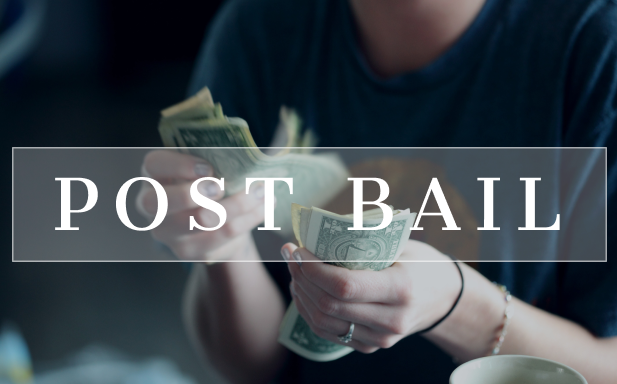
What Is Posting Bond?
After being charged with a crime, a judge will allow the defendant to pay a form of collateral called bond, in order to be released from jail while the case is pending. This is a way to ensure people charged with a crime show up to court. This also allows the defendant to go back and enjoy their daily life. For certain crimes, there might already be a set bail amount, however, usually a defendant must wait until an arraignment to figure out how much their bond costs. The arraignment will usually take between 48-72 hours after an arrest. Now, the defendant will have the opportunity to post bail.
How To Post Bond
There are a few ways to post bond, the first is simply to pay the bond out of pocket. The second way to post bail is to give the court personal collateral, such as a house, car or jewelry. The last way to post bail is to contact a bail bonds service. This is a good option for those who cannot meet bail themselves. The bonds service will pay the bail for the defendant, usually charging a 10% fee.
What Is Bail?
After being charged with a crime, a judge will allow the defendant to pay a form of collateral called bond, in order to be released from jail while the case is pending. This is a way to ensure people charged with a crime show up to court. This also allows the defendant to go back and enjoy their daily life. For certain crimes, there might already be a set bail amount, however, usually a defendant must wait until an arraignment to figure out how much their bond costs. The arraignment will usually take between 48-72 hours after an arrest. Now, the defendant will have the opportunity to post bail.
How To Post Bond
There are a few ways to post bond, the first is simply to pay the bond out of pocket. The second way to post bail is to give the court personal collateral, such as a house, car or jewelry. The last way to post bail is to contact a bail bonds service. This is a good option for those who cannot meet bail themselves. The bonds service will pay the bail for the defendant, usually charging a 10% fee.

After Bond Is Payed
The government will hold the bail money until the case is resolved. While on bail there are certain restrictions that can be placed on the defendant by the judge, such as no foreign or out of state travel, no weapons, monitoring, drug tests and more. Once the case is resolved, and the defendant has made appearances to all court proceedings, the money will be returned to the defendant or bail bonds service, depending on how they posted bail. If the defendant fails to appear in court, the government will keep the bail.
For posting bail, contact one of our offices – Columbus, Ohio, Shaker Heights, Ohio, Cleveland, Ohio, Canton, Ohio, Warren, Ohio, and Akron, Ohio.
